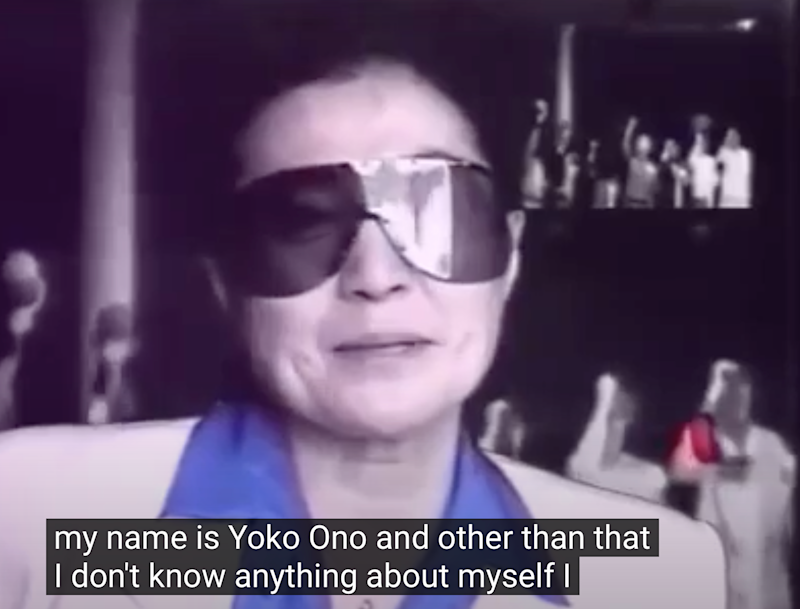Notes on Blocks
On Rejecting Narrative Identity
4/29/2022
Nico Chilla
This piece came out of an “are.na walkthrough” event in early April, which featured four people walking us through one of their channels.

Among such turns of phrase as “fundamental attribution error” and “construal level theory,” the phrase “narrative identity” has to be one of psychology’s more poetic technical terms. It refers to an equally poetic idea: as humans, we like to weave our life experiences together in concise narratives that articulate who we are. We carry these narratives with us, and in theory they not only convey our identities to others, but help us find meaning in our own lives. I think this is a familiar practice to most of us, in the form of the “self-introduction” (read: self-definition) that we’re obliged to give in so many contexts: ice breakers, cover letters, artist statements, social media bios, personal branding, the list goes on.
To be “against” narrative identity is to recognize that we’re unreliable narrators. Unreliable both because we’re too close to ourselves to get a clear picture, and because we could never accurately reduce who we are to a single story. In the interest of not offending psychologists, I should be clear that I’m stretching the term far beyond its technical usage; with this channel I’m questioning a deeper relation to the “self” that western culture celebrates. At the same time, I’m beginning to explore something I’ll tentatively call discursive identity: a way of seeing and presenting yourself as dispersed across all that you say and do.
One of the main reasons I find narrative identity interesting as a social practice is that it’s recursive. You start with a desire to show yourself to others, and this seems to require introspection: you have to reflect on who you are, in order to know what story to tell. But in forming this story, and making inferences about how other people see you, you change the way you see yourself. Further, you begin to model your actions after this self-image that you’ve created. I’ve often found myself on the cusp of saying or doing something, wondering “does this reflect who I am? Is this how I want people to view me?” In this way, we risk becoming caricatures of ourselves.
There’s an idea in philosophy of mind known as “privileged access:” it refers to our sense that (being ourselves) we know ourselves better than anyone else knows us. Many philosophers have argued that privileged access is an illusion — that is, we don’t necessarily understand ourselves better than we understand anyone else. For some, this is because we fundamentally can’t know ourselves. For others, the whole concept of “the self” is an idle fantasy: each of us is just a bundle of thoughts and sensations moving through the world.
I found this wonderful comment from Yoko Ono in a documentary of the fluxus art movement. She seems to reject our social ritual of offering a self-definition, and recognize her ignorance with regard to her own identity. In this way, I found it reminiscent of the famous Socratic saying ‘I know that I know nothing.’ It’s the perfect motto for this channel.
For me a discursive view of the self means giving up the endeavor of finding oneself altogether. It’s the thought that we don’t need the self in order to pursue the things that matter to us, and that this pursuit is the best indicator of who we are.
At least in our online presence, I think we have an opportunity to embody this idea. Rather than trying to sum ourselves up in a few vague sentences on an About page, we should let people learn about us in glimpses across different platforms and projects. I think this better reflects how we come to know people in stories and life. Our identity qua identity should recede into the background, while our actions and interests take center stage.
One really compelling concern brought up during the walkthrough discussion was whether the Yoko Ono approach is really practical in our everyday interactions. The ritual of self-introduction is so embedded in our social fabric. Andas Daniel Wessel writes of small talk, these sorts of practices serve to “establish a rudimentary emotional trust;” to violate the custom is to risk alienating people. This is a hard problem. I do think following custom is a vital part of being a member of a community. But I also think custom is a living, breathing thing of which we are all the architects, and that means we have some power to redraw the lines. During the discussion I heard so many creative approaches for how to push our current boundaries: different ways of presenting ourselves, different questions to ask people, different conversational angles. If this channel spoke to you, I encourage you to experiment with your own methods.
Nico Chilla studies graphic design and philosophy at the New School.
Are.na Blog
Learn about how people use Are.na to do work and pursue personal projects through case studies, interviews, and highlights.
See MoreYou can also get our blog posts via email